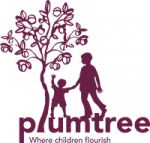For those of us new to the world of disability we can often find the terminology and labels a little confusing to say the very least. We thought who better to guide us through engaging and relating to the autism community than Dr Melanie Heyworth, who has shared her below helpful tips:
As a general rule, Melanie suggests the following:
- Try not to use any references to ASD/autism spectrum ‘disorder’. The autistic community considers the ‘d’ (for ‘disorder’) offensive and unnecessary. Autism works in all contexts instead of ASD or autism spectrum disorder/s.
- Champion autism acceptance over autism awareness. Awareness is passive, acceptance requires action.
- Avoid words like ‘treatment’, ‘intervention’ and ‘cure’, which suggest that autism is a deficit or a disease. Words like ‘support’ are much more constructive and reflective of where the autistic community mindset is.
- Steer clear of any reference to puzzle pieces (think people, not puzzles to be solved; you can use the infinity symbol instead).
- Avoid functioning labels, like high or low functioning, and including words like ‘mild’ or ‘severe’.
- Be mindful not to correlate an autistic individual’s support needs with the so-called ‘severity’ of their autism. That means you don’t have a child with ‘Autism, Level 3’, since the level merely tells you the intensity of support the child needs.
If you would like to delve a little deeper Melanie has written an incredible Manifesto for allies https://reframingautism.wordpress.com/2019/02/15/a-manifesto-for-allies/:
Plumtree is also hosting the following upcoming events in collaboration with Reframing Autism:
- Talking to children about Autism, a webinar on Monday 26th August, 7.30pm
- An introduction to Autism and Neurodiversity on Saturday 28th September, 1-3pm
Dr Melanie Heyworth is an exceptional resource for our community and has recently taken the reins at Reframing Autism. Reframing Autism is a new peer-led organisation run by Autistic and neurodivergent people, for their families and allies. It is a group in which autistic people and their non-autistic families and allies come together to understand autism and neurodiversity to effect social change and achieve genuine respect, acceptance and inclusion for the autistic community.
Melanie writes in her Manifesto for Allies: Over the past few years, four of the five members of my immediate family have been identified as Autistic: myself and my three sons. It has been a turbulent time to say the least, but now – as a family which embraces respectful parenting by accepting our various neurodivergences – we live a very gratifying, pleasing and generally content life. This journey has fostered a profound passion in me for helping others to see my Autistic community as beautiful, not broken, as different, not less. I want every Autistic individual to be seen for their passions, strengths and talents, and not defined by their deficits; I want to explore the stigmatising stereotypes that are used to justify discrimination against the Autistic community, that confine us to Other and ‘less than’.







